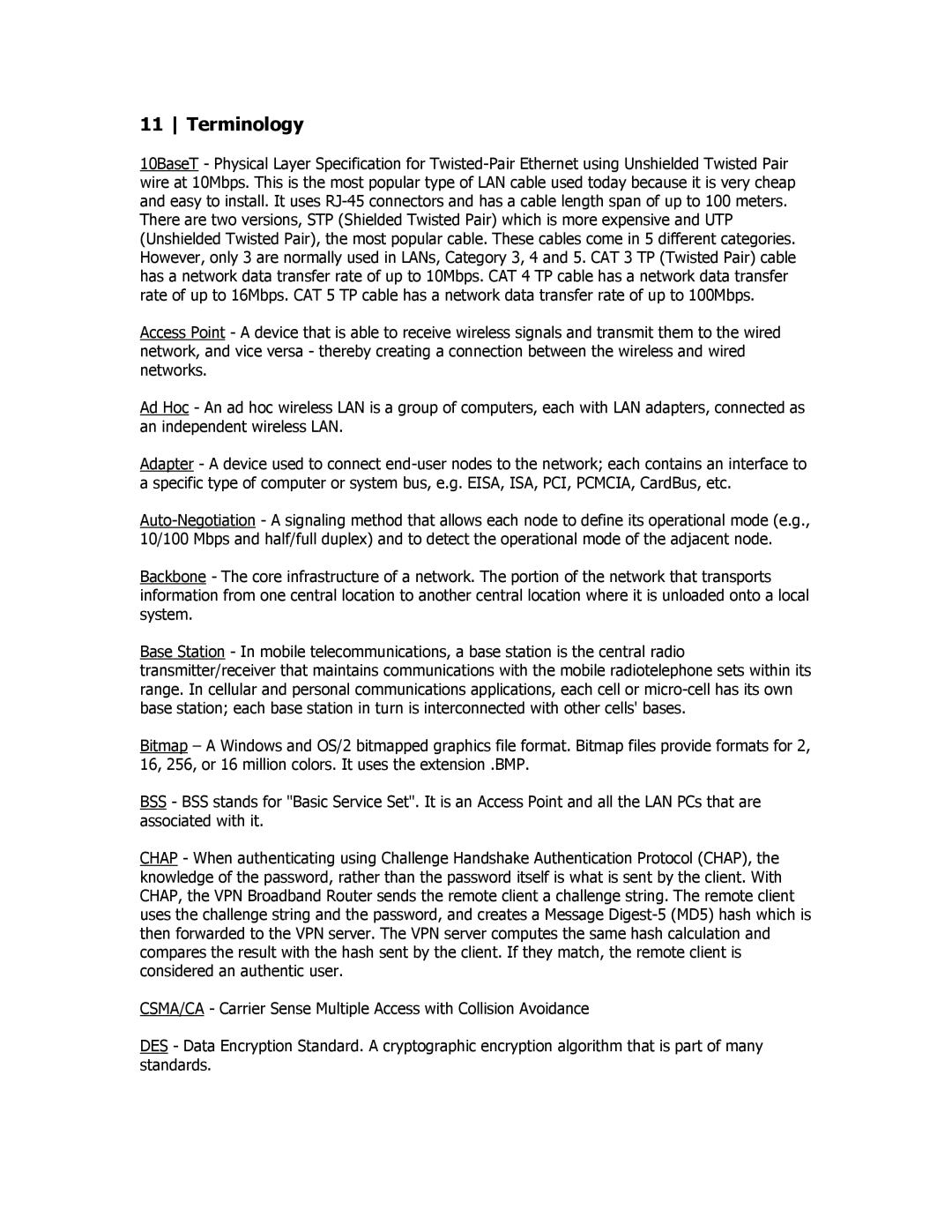11 Terminology
10BaseT - Physical Layer Specification for
Access Point - A device that is able to receive wireless signals and transmit them to the wired network, and vice versa - thereby creating a connection between the wireless and wired networks.
Ad Hoc - An ad hoc wireless LAN is a group of computers, each with LAN adapters, connected as an independent wireless LAN.
Adapter - A device used to connect
Backbone - The core infrastructure of a network. The portion of the network that transports information from one central location to another central location where it is unloaded onto a local system.
Base Station - In mobile telecommunications, a base station is the central radio transmitter/receiver that maintains communications with the mobile radiotelephone sets within its range. In cellular and personal communications applications, each cell or
Bitmap – A Windows and OS/2 bitmapped graphics file format. Bitmap files provide formats for 2, 16, 256, or 16 million colors. It uses the extension .BMP.
BSS - BSS stands for "Basic Service Set". It is an Access Point and all the LAN PCs that are associated with it.
CHAP - When authenticating using Challenge Handshake Authentication Protocol (CHAP), the knowledge of the password, rather than the password itself is what is sent by the client. With CHAP, the VPN Broadband Router sends the remote client a challenge string. The remote client uses the challenge string and the password, and creates a Message
CSMA/CA - Carrier Sense Multiple Access with Collision Avoidance
DES - Data Encryption Standard. A cryptographic encryption algorithm that is part of many standards.
